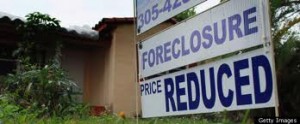 Deciding to purchase a home is one of the biggest financial decisions we will make in our lifetime. We recently discussed five mistakes that all first time home time home buyers should avoid making. But in this post, we will provide four tips to intelligently make an offer on a home.
Deciding to purchase a home is one of the biggest financial decisions we will make in our lifetime. We recently discussed five mistakes that all first time home time home buyers should avoid making. But in this post, we will provide four tips to intelligently make an offer on a home.
So when you find a home that you love, and that is within your budget, you want to make sure that your offer is both realistic and good enough to beat other potential buyers trying to buy the same property while also ensuring that you don’t over pay for the property.
Here are five tips that could help you accomplish that objective:
- Research. Before you submit an offer on that property you should conduct as much research as possible about the subject property. You should try and find out how long the property has been on the market. Learn about the current market dynamics in that neighborhood in terms of supply and demand for other properties. You should also check the physical condition of the property. In sum, the more information you can obtain about the property and area the better position you will be in to negotiate the sales contract.
- Initial Offer. Once you are ready to submit an offer, you should quickly and thoroughly prepare a proposed contract with all of your proposed terms and conditions. It is not enough to simply agree on a sales price, but you should also consider when you want to close as well as ensuring that you will be receiving clear title at the time the transaction is complete.
- Negotiate. Remember, your initial offer is just that – a starting point. Therefore, be prepared to receive a counter-offer from the seller. The counter-offer may include many non-financial terms as well as a new proposed sales price. Be prepared to go over both the proposed sales price, and other proposed terms. Also be prepared for these negotiations to go several rounds with the seller.
- Home Inspection. It is imperative that before you purchase the home that you schedule a thorough home inspection. An inspection should focus on unsafe conditions or expensive repairs like structural integrity, plumbing, roof condition, electrical maintenance, termites, pests, and more. Moreover, if you have any additional concerns, be sure to discuss them with your inspector so your inspector can inspect same. Once the inspection is complete, your inspector will prepare a report and that report may serve as the basis to re-open negotiations with the seller.
Once you have completed this process, it will be time to complete your transaction and become a home owner. Here are seven tips to save you money on closing costs.
Nonetheless, if you follow the above process you will no doubt help yourself get the best possible deal on your home purchase.








